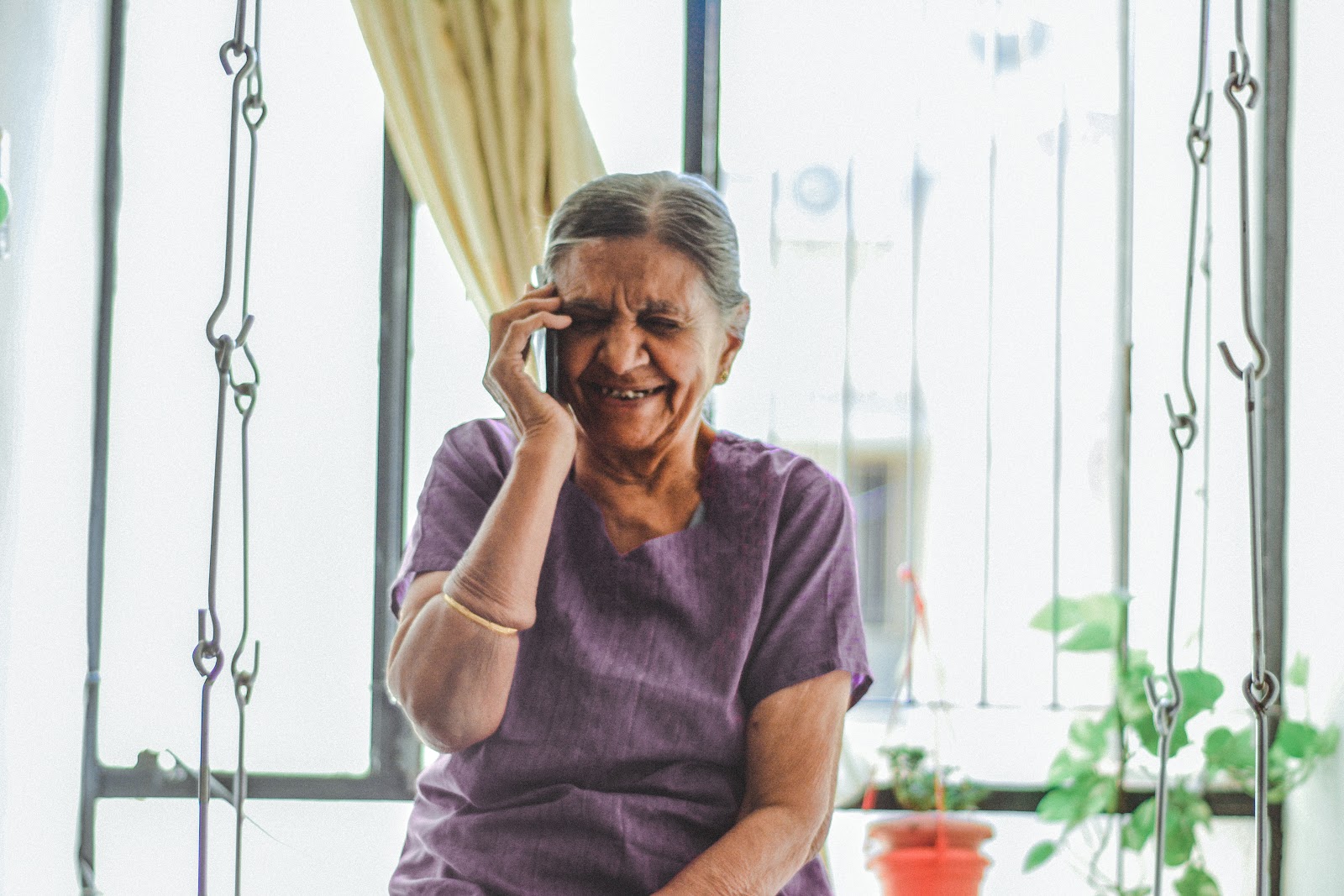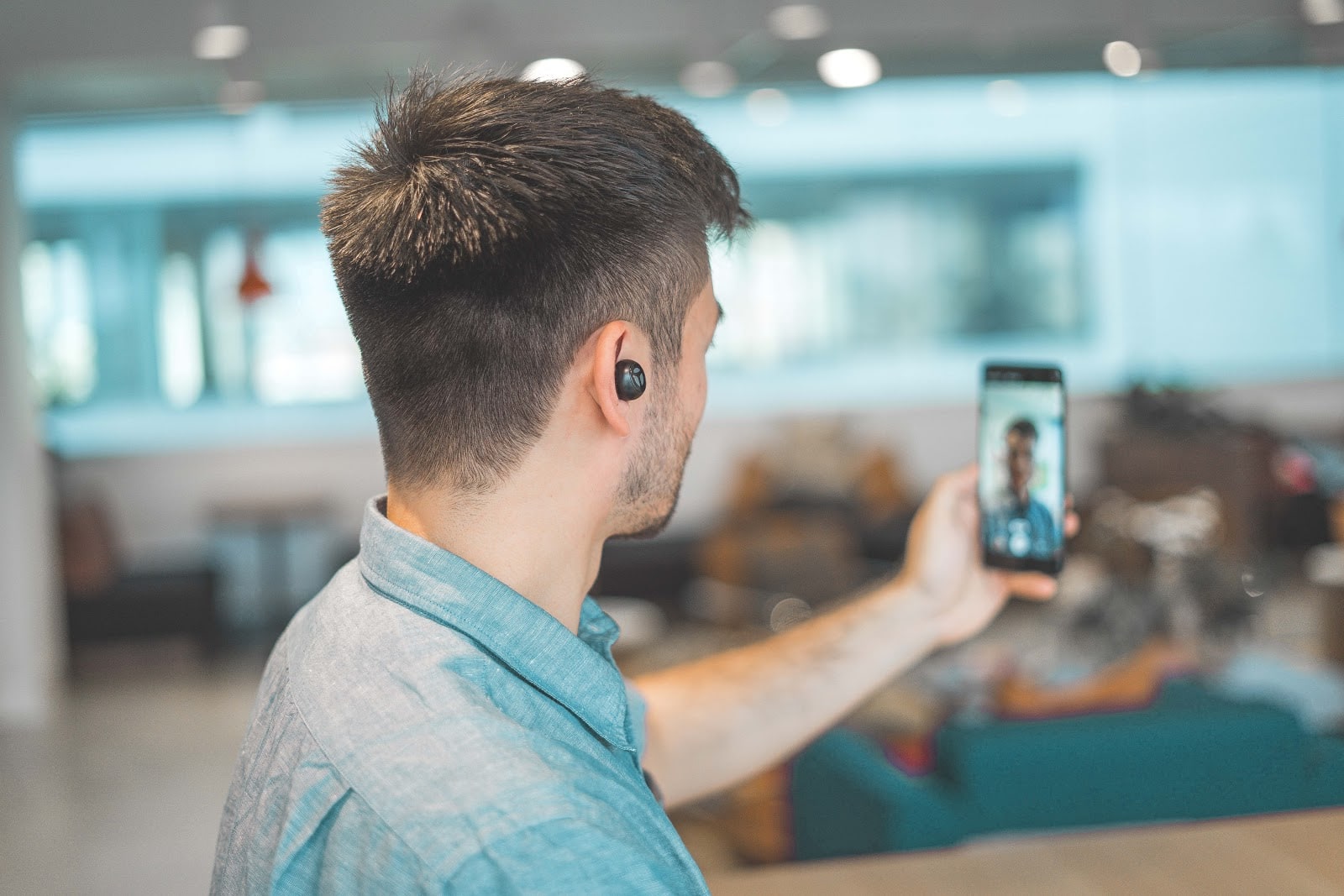When we aren’t face-to-face with our friends — hanging out at bars, attending brunch, organizing board game nights — it can be easy to forget something very, very important when it comes to maintaining your personal connections with people: checking in on your friends.
Because of the coronavirus and our requirement to stay isolated, we have lost our sense of routine. Maybe you used to wake up and text your friends to find out what they’re up to after work. Or you’d all go through the week knowing that you’d get together on the weekend. But because of social distancing, we have fallen into complacency with our friends. Why text them when you can’t go grab a drink later? Why call them when you can’t plan something for the weekend?
But it’s actually more important than ever — for friends and ourselves — to stay in touch, even if it’s just a short text. At VP Legacies, we know the importance of building and maintaining our personal relationships. That’s why we offer our Personal Connection 101 course, helping you have deeper conversations with your friends and other loved ones. But sometimes all it takes is a “Hello, how are you?” text.
Who Should You Be Checking in With?
We aren’t saying to run down your entire Facebook “friends” list and message everyone on there. But if there’s someone who crosses your mind and you realize you haven’t spoken to them in a while, reach out to them. Ask them how they’ve been doing or what they’re up to. Cell phones have made this easier than ever.
If you have friends who are going through something — a rough relationship, a breakup, a job transition, a move, a loss in the family, depression — these are friends you should prioritize if you only have so much energy and time to check-in. For people dealing with hardships, social distancing and quarantine has only made it harder. There are less distractions and less interactions, making your quick text more meaningful than ever.
Okay, so what is checking in? Is it a quick “hello” text? Is it a phone call? Is it asking them if they’d like to video chat? Well, each friend requires something different. You most likely know if your friends like texting over calling, or if they appreciate a deep conversation once in a while. And you also know what you have the energy to provide to them without exhausting yourself during this difficult time. Remember, you can only help others if you’re well enough yourself.
Related: How to Build a Strong Relationship with Yourself
A Quick Text Message
Cell phones have made staying in touch easier than ever. In fact, they’ve given us very little excuse NOT to check-in. Everyone knows how fast it is to shoot over a text. That makes it even more hurtful when you don’t make the effort to send over a text to your friend. Whether it’s over Facebook messenger, another social platform, text, or whatever app you have on your phone, why not send over a short message to let them know you’re thinking of them?
If you know they’re going through something difficult, don’t be afraid to address it. Tell them you’re thinking of them during this time, sending them good energy, prayers, or whatever is appropriate for that individual.
Sometimes we don’t send over these simple texts because we don’t have the time or energy to respond to the conversation that might ensue from it. Well, that’s the other beauty of texts and cell phones. Set your boundary ahead of time. Tell them you’re about to clock into work, but you just wanted to let them know how much you care. Or tell them you’re about to make dinner, but you just wanted them to know you’re thinking of them during this time.
Just Listen

If you do have the time and energy, sometimes it’s important to just listen. They may not be looking for advice. They may not even be looking for you to agree. During this time of social distancing, it’s just nice to have someone there listening to something they may have been bottling up inside since they have nobody to talk to.
Like before, you can make your boundaries known by letting them know you only have a certain amount of time to talk. But remember to be present and responsive when you are giving them that time to talk. They have to feel that you care or they may as well be ranting to their cat.
Give Advice
Sometimes when you hear someone’s problem and it sounds familiar you want to chime in with advice or your experience with the subject matter. Remember that almost nobody wants unsolicited advice. But if they do ask for your opinion on a problem they’re having, you’re most definitely allowed to share your own experience or take on the situation at hand. Just remember:
Your friend may want something different than you. Just because you have both gone through the same struggle, doesn’t mean that they want the same outcome as you. Keep your friend’s interests, personality and goals in mind when giving advice, so it doesn’t come across like you think there’s only one “correct” way to deal with things.
Your advice has limits. On the other hand, sometimes it will be a topic you know little to nothing about. Maybe they’re dealing with a tough project at work, but you’re not familiar with that field at all. You can still offer them a new perspective, but you don’t want to make your advice sound matter-of-fact. Recognize that you may not know all the facts or may not know the best way to deal with something you have no experience with.
They may not want to take your advice. This is often the most frustrating part to deal with. You hear a friend going through something hard and you want to help. You feel you have the solution that will end their suffering. But they turn down your idea. It makes you mad because you care. But keep in mind that they have the right to choose what to do, even if you don’t agree with it. Arguing will only make them feel worse. And sometimes they may have already tried the advice you’ve given and it didn’t work.
Basically, advice is supposed to show support and offer a new perspective. It’s not supposed to be the start of an argument or a way to demand your friend see things your way. They may not and that’s okay. The important thing is that you showed you cared.

Offering Practical Solutions and Services
Before the pandemic, this was a great way to connect with your friends and show you care. You could come over with their favorite food and board games when they were sick. You could help them fix their car or decorate for their wedding. For many people, their desired love language is acts of service, so that was how you supported them. But now what?
There are still ways you can show you care without breaking social distancing guidelines. Bake them something and drop it off at their house. Order them something fun on Amazon and surprise them with the package. Sew them a mask and mail it to them. Have them drop their car off at your house if you have the tools and time to fix something.
It’s not really about the service itself. It’s about making the effort and showing you still want to connect with them during this time and make sure they’re okay.
VP Legacies has a live show on Facebook and Instagram about a connecting in the midst of a global pandemic. Things are different now. We can’t simply hang out with our friends to show we care or to connect with them throughout the week. So we wanted to help you maintain these connections with this ongoing and free course about spending time with your loved ones during this difficult time.
We can all do more right now to check in with your friends during the pandemic. Whether it’s dropping off cupcakes or simply sending a text asking how they’re doing, it’s all about showing you’re still thinking of them. It can feel like we’re losing our strong connections with friends now that we can’t bond over a tough hike or fun gathering. But don’t let these friendships fade away.
Make sure you’re checking in with friends. It’s needed more than ever before.

